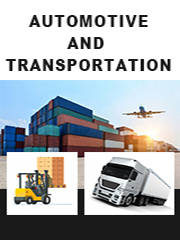TOP CATEGORY: Chemicals & Materials | Life Sciences | Banking & Finance | ICT Media

Download Report PDF Instantly
Report overview
The global Automotive Vehicle-to-Everything market was valued at US$ 2396.2 million in 2023 and is projected to reach US$ 2286.1 million by 2030, at a CAGR of -0.7% during the forecast period. The influence of COVID-19 and the Russia-Ukraine War were considered while estimating market sizes.
Automotive electronics industry is in constant evolution, making the car always safer, greener and more enjoyable to drive.
Vehicle-to-X refers to an intelligent transport system where all vehicles and infrastructure systems are interconnected with each other.
This connectivity will provide more precise knowledge of the traffic situation across the entire road network which in turn will help: Optimize traffic flows, Reduce congestion, cut accident numbers, Minimize emissions.
V2X technology is based on 5.9GHz Dedicated Short Range Communication, a derivative of WiFi specifically defined for fast moving objects. It allows vehicles to communicate their state, such as their position and speed, to surrounding vehicles and infrastructures even in non-line-of-sight condition, such as behind a building or a curve.
V2X communications shouldnt be confused with self-driving vehicles. The system has been designed to provide drivers with additional safety and convenience notifications that will be integrated with information from the many other on-board sensors. Its still up to the driver, obviously, to drive the car. However, V2X is an enabling technology that one day will make even self-driving cars much safer by helping them see and react to invisible danger.
Driver awareness of potential dangers on its way, such as crash risk, unsafe overtake, vehicle braking ahead out of line sight, car in blind spot area or road hazard detection, will dramatically improve collision avoidance, and heavily reduce fatalities and injury severity. In addition, the technology will enhance traffic efficiency providing warnings for upcoming traffic congestions, proposing alternative routes and securing an eco-friendly driving, reducing CO2 emission through adaptive cruise control and a smarter transportation management.
Driven by those benefits and the determination to become an key player in this field, ST launched a cooperation with Autotalks for the co-development of a mass-market optimized V2X chipset. Recognized as the V2X chipset market pioneer, Autotalks is bringing in this cooperation their system expertise and know-how of the V2X technology. Leveraging on a robust joint design and STs Automotive Quality and Manufacturing machine, Autotalks will release to the market an unique V2X solution.
This report aims to provide a comprehensive presentation of the global market for Automotive Vehicle-to-Everything, with both quantitative and qualitative analysis, to help readers develop business/growth strategies, assess the market competitive situation, analyze their position in the current marketplace, and make informed business decisions regarding Automotive Vehicle-to-Everything. This report contains market size and forecasts of Automotive Vehicle-to-Everything in global, including the following market information:
Major producers in the industry are Delphi(Aptiv), Continental AG, Denso, Cohda, Kapsch, Qualcomm, ETRANS, Savari, Autotalks and Arada (Lear), among others.
We surveyed the Automotive Vehicle-to-Everything manufacturers, suppliers, distributors and industry experts on this industry, involving the sales, revenue, demand, price change, product type, recent development and plan, industry trends, drivers, challenges, obstacles, and potential risks.
Total Market by Segment:
Global Automotive Vehicle-to-Everything Market, by Type, 2018-2023, 2024-2029 ($ Millions) & (K Units)
Global Automotive Vehicle-to-Everything Market Segment Percentages, by Type, 2029 (%)
Global Automotive Vehicle-to-Everything Market, by Application, 2018-2023, 2024-2029 ($ Millions) & (K Units)
Global Automotive Vehicle-to-Everything Market Segment Percentages, by Application, 2029 (%)
Global Automotive Vehicle-to-Everything Market, By Region and Country, 2018-2023, 2024-2029 ($ Millions) & (K Units)
Global Automotive Vehicle-to-Everything Market Segment Percentages, By Region and Country, 2029 (%)
Competitor Analysis
The report also provides analysis of leading market participants including:
Further, the report presents profiles of competitors in the market, key players include:
Outline of Major Chapters:
Chapter 1: Introduces the definition of Automotive Vehicle-to-Everything, market overview.
Chapter 2: Global Automotive Vehicle-to-Everything market size in revenue and volume.
Chapter 3: Detailed analysis of Automotive Vehicle-to-Everything manufacturers competitive landscape, price, sales and revenue market share, latest development plan, merger, and acquisition information, etc.
Chapter 4: Provides the analysis of various market segments by type, covering the market size and development potential of each market segment, to help readers find the blue ocean market in different market segments.
Chapter 5: Provides the analysis of various market segments by application, covering the market size and development potential of each market segment, to help readers find the blue ocean market in different downstream markets.
Chapter 6: Sales of Automotive Vehicle-to-Everything in regional level and country level. It provides a quantitative analysis of the market size and development potential of each region and its main countries and introduces the market development, future development prospects, market space of each country in the world.
Chapter 7: Provides profiles of key players, introducing the basic situation of the main companies in the market in detail, including product sales, revenue, price, gross margin, product introduction, recent development, etc.
Chapter 8: Global Automotive Vehicle-to-Everything capacity by region & country.
Chapter 9: Introduces the market dynamics, latest developments of the market, the driving factors and restrictive factors of the market, the challenges and risks faced by manufacturers in the industry, and the analysis of relevant policies in the industry.
Chapter 10: Analysis of industrial chain, including the upstream and downstream of the industry.
Chapter 11: The main points and conclusions of the report.